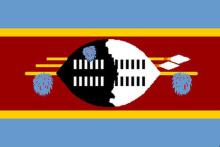Country Partner
Swaziland partners
Flag

Eswatini
Pooled funding and or SWAP
No SWAp
UNDAF rollout cycles
2011-2015
PEPFAR focus countries
Yes
World Bank
Interim Strategy note 2008-2010 is a framework for scaling up support for the Kingdom of Swaziland for the period April 2008 - April 2010. Although formally a lower middle income country (LMIC) the Kingdom of Swaziland is facing challenges that in many ways exceed the challenges of Africa's poorest countries. It has the highest HIV/AIDS prevalence rate and the lowest life expectancy in the world and an estimated two-thirds of its citizens live in poverty. Income inequality is among the highest in the world. In response to the current deep and worsening social crisis and uncertainty regarding the volume of Southern African Customs Union (SACU) revenues in the longer term the government must initiate quickly a significant package of reforms and actions. These include addressing the HIV/AIDS pandemic with greater effectiveness; improving critical areas of public finance management and improving competitiveness of the economy. The economy and the government's fiscal position have recently benefited from a windfall of higher revenue inflows from the Southern African Customs Union increased imports by Swaziland's large and dynamic neighbor South Africa. These revenues which account for 66 percent of Swaziland's revenue base have affected Swaziland's economy and public finances in ways similar to natural resource revenue inflows in natural-resource-dependent economies with many of the same frequently observed detrimental effects.
European Commission
Country Strategy Paper for Swaziland (2008-2013) will focus on the promotion of human development through support to the health and education sector as well as on the improvement of water supply sanitation and irrigation in order to improve living standards of the rural population. Cross-cutting issues in particular gender HIV/AIDS good governance capacity building and environment have also been integrated in the majority of EC-funded programmes in Swaziland.
Health Metrics Network Wave 1
No